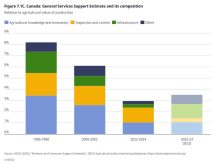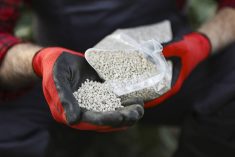Reuters – BASF, the world’s largest chemical company, is cutting ammonia production again due to soaring natural gas prices, it said July 27, with potential value-chain ramifications ranging from farming to fizzy drinks.
Germany’s biggest ammonia maker, SKW Piesteritz, and number four, Ineos, also said they could not rule out production cuts as the country grapples with disruption to Russian gas supplies.
Ammonia plays a key role in the manufacturing of fertilizer, engineering plastics and diesel exhaust fluid. Its production also yields high-purity carbon dioxide as a byproduct, which is needed by the meat and carbonated beverage industries.
Read Also

Spoken questions are what make it an interview
Recently, I was exchanging emails with the media email account at a government agency, hoping to reach a source for…
“We are reducing production at facilities that require large volumes of natural gas, such as ammonia plants,” BASF’s chief executive, Martin Brudermueller, said in a media call after the release of quarterly results.
He said BASF would purchase some ammonia from external suppliers to fill gaps but warned that farmers would face soaring fertilizer costs next year.
Production lines for raw material syngas (a mixture of carbon monoxide and hydrogen) and basic petrochemical acetylene were also candidates for cutbacks to save on gas, he said.
Unlike many European countries, Germany has no liquefied natural gas port terminals to replace Russian pipeline gas. That means companies are under political and commercial pressure to reduce gas-intensive activities if gas deliveries are cut further.
BASF reduced ammonia output at its headquarters in Ludwigshafen, Germany, and at its large chemical complex in Antwerp, Belgium, in September 2021. SKW Piesteritz also cut ammonia production at that time by 20 per cent, later resuming normal production when customers accepted price mark-ups.
Fertilizer giant Yara, which runs Germany’s third-largest ammonia production site, said its output across Europe was 27 per cent below capacity due to the surge in gas prices.
SKW Piesteritz said it was in the process of resuming full production after a scheduled maintenance shutdown but the future capacity utilization rate was difficult to predict.
Chemical companies are the biggest industrial natural gas users in Germany and ammonia is the single most gas-intensive product within that industry.
Prime candidate
Ammonia production would be a prime candidate for cuts to cushion any gas supply squeeze over the next few months, according to Arne Rautenberg, a fund manager at Union Investment.
“In the Northern Hemisphere, nitrogen fertilizer is applied primarily during the spring. It can also be produced in the United States and shipped to Europe,” he said, adding that carbon dioxide supply for the food industry could prove a thorny issue.
Russia resumed pumping gas via its biggest pipeline to Europe, Nord Stream 1, on July 21 after a 10-day maintenance outage, but Russian energy corporation Gazprom said July 25 that supplies to Germany would drop to just 20 per cent of capacity.
Even before the war in Ukraine, reduced ammonia production due to rocketing natural gas prices in Britain last year caused CO2 shortages in the meat and drink industries.
That forced the U.K. government to provide financial support for ammonia maker CF Industries in September 2021 to restart production.
During normal times, ammonia production accounts for about 4.5 per cent of natural gas used by German industry.
SKW Piesteritz can cut output on its production lines for ammonia and urea by no more than 20 per cent each, or it would have to suspend output entirely in a costly ramp-down, a spokesperson said.
Britain’s Ineos said it was watching energy costs closely and “will adjust production to make best use of low-peak energy and purchasing of raw materials.”
Ammonia production has been reduced considerably in Germany already because of high gas prices, said chemical industry lobby VCI.
SKW Piesteritz said it was providing CO2 to the food industry with Air Liquide as intermediary. BASF also said it was providing CO2 through industrial gas companies.
Industry-wide cash costs for European ammonia production during the first quarter were five times the average 2019 level and far above other world regions, according to data compiled by U.S.-based Boston Consulting Group.















